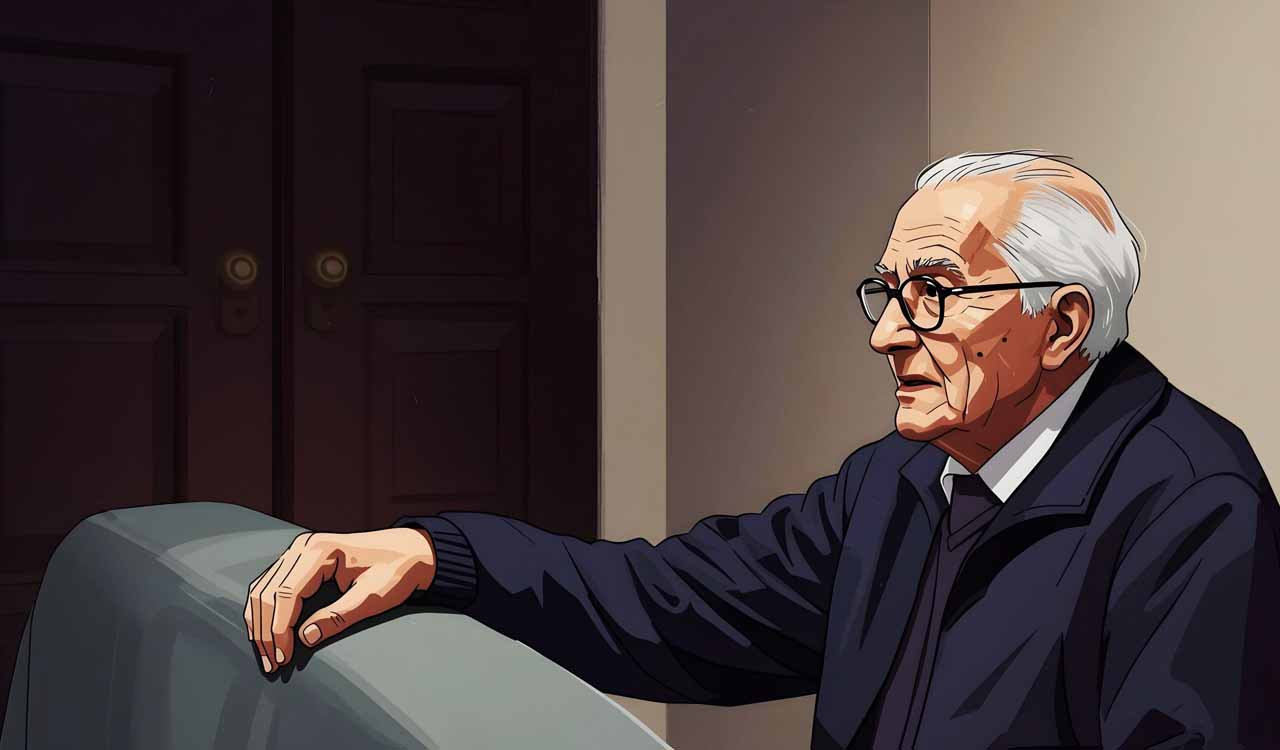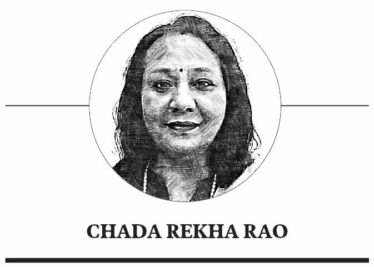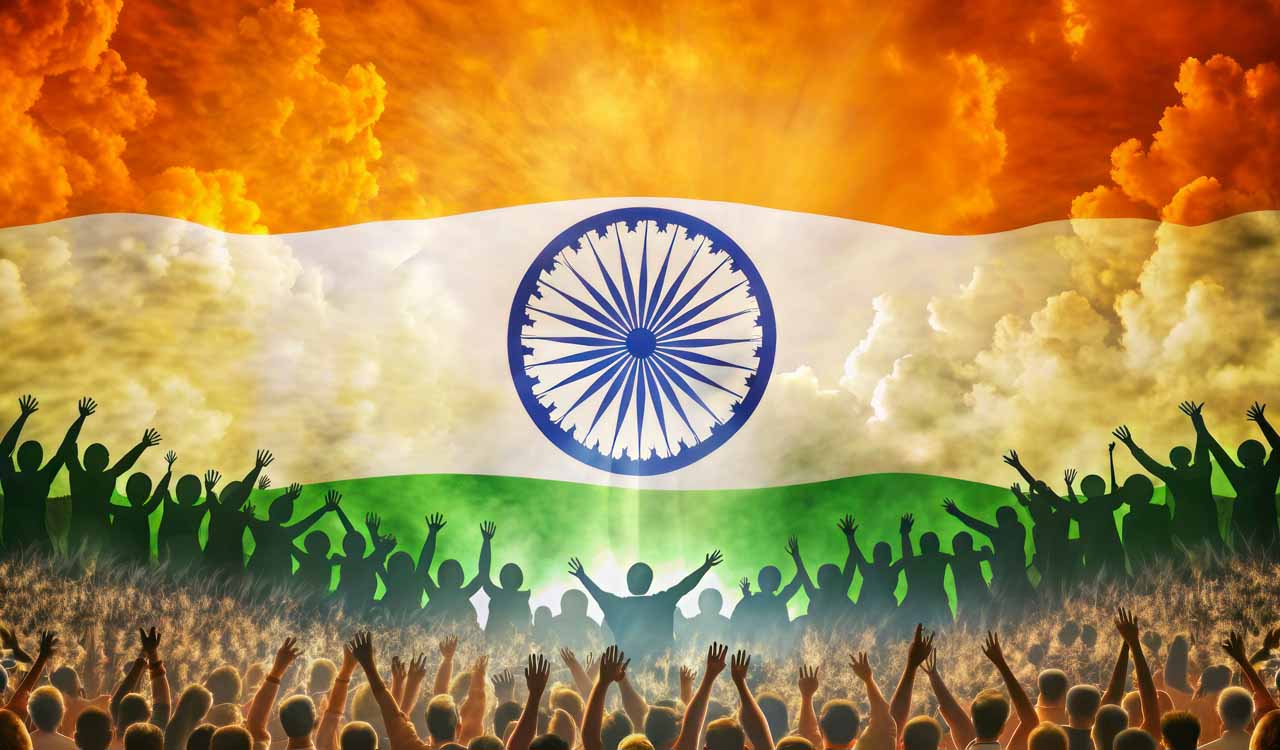Opinion: World Elder Abuse Awareness Day: How society is failing its elderly
Old age is not just about a weakened body. It is a journey back to dependency, often harder than infancy — because society offers no celebration or emotional support for it

By Chada Rekha Rao
We talk about trash management, waste management. Are we not pushing or treating our elders to the same level? We just observed World Elder Abuse Awareness Day on June 15, the 2025 theme being ‘Grow the conversation …recognise the sign, reduce the risk’. The theme is more of an SOS than an awareness, of how cruelly we mistreat our elders.
Whatever the reason— their dementia, Parkinson’s disease, stroke, senile tremors, delirium, insanity, mental health issues, or the generation gap — the old, the elderly have to be treated with love, respect, and humanity, not punched, slapped, abused, thrown to isolation, harsh handling.
Generally, we say parents look after the children when they are young. But when the same parents become old — when it is time for the children to look after their parents in a role reversal — they are treated like trash, a sad reality. Hark to the tearful sad saga of old age homes or sense the plight of elders who are caged within the so-called houses. The reason is that every day, the condition of the old, the elderly, deteriorates.
The Truth We Don’t Want to Admit
We prepare new mothers with books, apps, hospital classes, and midwives. But where is the handbook for a son or daughter-in-law who is suddenly faced with an ageing parent losing memory, mobility, and sometimes even sanity? There is no system to prepare us for the reversed parenting required when our elders regress into helplessness.
Our elders are not burdens to be outsourced. We need trained, supported, and empathetic caregiving models — starting at home
Old age is not just about a weakened body. It is a journey back to dependency, often harder than infancy — because society offers no celebration or emotional support for it. An elderly father soiling his bed is not met with coos of compassion, only irritation. A mother with Alzheimer’s is not cuddled like a forgetful toddler — she’s ignored or sent to a care home.
Behavioural Challenges of the Elderly
Before we blame the youth or the caregivers, we must understand the behavioural changes the elderly undergo. These are not willful actions but symptoms of biological and psychological changes:
- Memory Loss: Ranging from forgetfulness to dementia, many elderly people cannot recall names, places, or even their own children’s faces.
- Emotional Outbursts: Frustration, helplessness, or neurological issues can cause mood swings, irritation, or sudden anger.
- Childlike Dependence: They may need help with bathing, dressing, eating, and toileting.
- Sleep Disturbances: Many elderly people wake up at night, wander, or feel restless due to disorientation.
- Paranoia and hallucinations: Especially common in Alzheimer’s, where they may believe loved ones are strangers or think they are being harmed.
- Incontinence: A deeply humiliating yet common reality that leads to embarrassment, dependency, and family tension.
These behaviours can exhaust even the most well-meaning caregivers, especially those who are unprepared.
Old-Age Homes: Care or Convenient Abandonment?
Sending parents to old-age homes has become a societal anaesthetic. It dulls guilt. Children living abroad send dollars and pounds, ensuring their parents are tucked into expensive facilities with private rooms, television, and hired caretakers. But money cannot buy what elders crave — presence, not presents.
In plush villas behind modern glass windows, the corpse of emotional connection often lies. Parents may live and eat, but inside, something dies. A part of their spirit fades because the love they once gave is now being outsourced.
How many silent deaths happen not because of disease, but because of neglect in comfort? Shakespeare’s Desdemona died in silence, and so do many of our elderly — abandoned emotionally even if surrounded by physical luxuries.
Our cinemas like Baghban, Saaransh, Swarg, Avtaar, Vadh remind us of the discarded, abandoned elderly.
Training the Young is Urgent
Just as we train would-be mothers, we must train would-be caregivers. Instead of romanticising sacrifice, we must institutionalise support and preparation. This training should include:
- Geriatric Psychology: Understanding dementia, Alzheimer’s, and elderly depression.
- Physical Care: Managing hygiene, feeding, medications, and mobility aids.
- Emotional Patience: Learning to deal with repetition, aggression, or helplessness without resentment.
- Home Safety Modifications: Anti-slip mats, grab bars, good lighting.
- Crisis Response: First aid, emergency contacts, signs of strokes or heart attacks.
- Mental Health of the Caregiver: Preventing burnout and emotional fatigue with access to therapy, breaks, and community support.
- Empathy Building: Activities and simulations to help caregivers understand ageing from the inside out.
This is not just for the daughter-in-law. Sons, daughters, and even grandchildren must be trained to respect and care for the aged. Elder care is not a woman’s job — it is a family’s shared responsibility.
The Global Picture: A Graying World
According to the World Health Organization, by 2050, the global population over 60 years will double to 2.1 billion. In India alone, the elderly will constitute 20% of the population, touching nearly 34 crore. Living conditions of the elderly
• Loneliness: A 2023 survey in the UK found that 1 in 3 elderly people speak to family members less than once a week.
• Poverty: Over 100 million elderly people globally live in poverty, especially in developing nations.
• Elder Abuse: The UN reports that 1 in 6 elders face abuse — emotional, physical, or financial.
• Neglect in Developed Nations: Even in countries like Japan and the US, elder neglect is rising due to nuclear families and low caregiver availability.
Daughter-in-Law Dilemma
Let’s acknowledge the elephant in the room. In traditional households, daughters-in-law become unpaid, untrained nurses. Many are working women themselves, juggling careers, children, and domestic expectations. Yet they are expected to care for the elderly parents-in-law with endless patience and no support.
This is unfair. Caregiving must not become a one-woman show. Sons must step in. Domestic help must be professionalised. And daughters-in-law must be respected and trained — not judged.
Instead of asking her, “Why can’t you handle it?”, we must ask, “How can we help you manage it better?”
What Society and Government Must Do
If we want to treat the elderly with dignity, the policy must follow the principle. Here are some key proposals:
• Community Elder Care Centres: Just like creches for children, we need community centres for day-care of the elderly.
• Caregiver Allowance: Monetary support for primary caregivers to reduce financial stress.
• Elderly Rights Charter: Ensuring legal protection against abuse, neglect, and financial exploitation.
• Public Awareness Campaigns: Like Beti Bachao, we need “Budhape Ko Apnayein” (Embrace Old Age) campaigns.
• Training Modules in Schools and Colleges: To make caregiving a life skill and not a surprise duty.
The Emotional Truth
The hardest part of ageing is not the disease, but the dismissal. The feeling of becoming invisible, irrelevant, or a burden haunts the elderly more than pain or pills. They don’t want grand gestures. They want eye contact. A shared meal. A festival celebrated together. A hand held. A voice heard.
Life is a circle. We begin helpless and end helpless. But between those points lies a sacred opportunity: to honour those who once honoured us.
World Elder Abuse Awareness Day must not be just about reporting violence or neglect. Let it be about starting conversations at dinner tables. Let it be about normalising elder care as a part of family life.
Just like the would-be mother is trained before childbirth, let us train the would-be caregiver before old age arrives at our doorstep. Let us teach not just with words, but with example and empathy. Before we plan another retirement home, let’s plan a return to humanity.

(The author is Educationist and Social Worker)
Related News
-
Couple elected as chairperson and vice-chairperson of Nirmal Municipality
1 hour ago -
Telangana municipal polls: BRS pockets 18 municipalities
1 hour ago -
BJP draws sharp criticism for meeting Congress leaders in Hyderabad
1 hour ago -
Inorbit Mall Cyberabad hosts Valentine specials, interactive games and live performances
1 hour ago -
Jangaon chairperson election postponed amid high drama
2 hours ago -
Editorial: Showcasing India’s tech prowess
2 hours ago -
Health Minister orders suspension of absent Jogipet doctors
2 hours ago -
Telangana government initiates preparations for first fully digital Census 2027
2 hours ago




